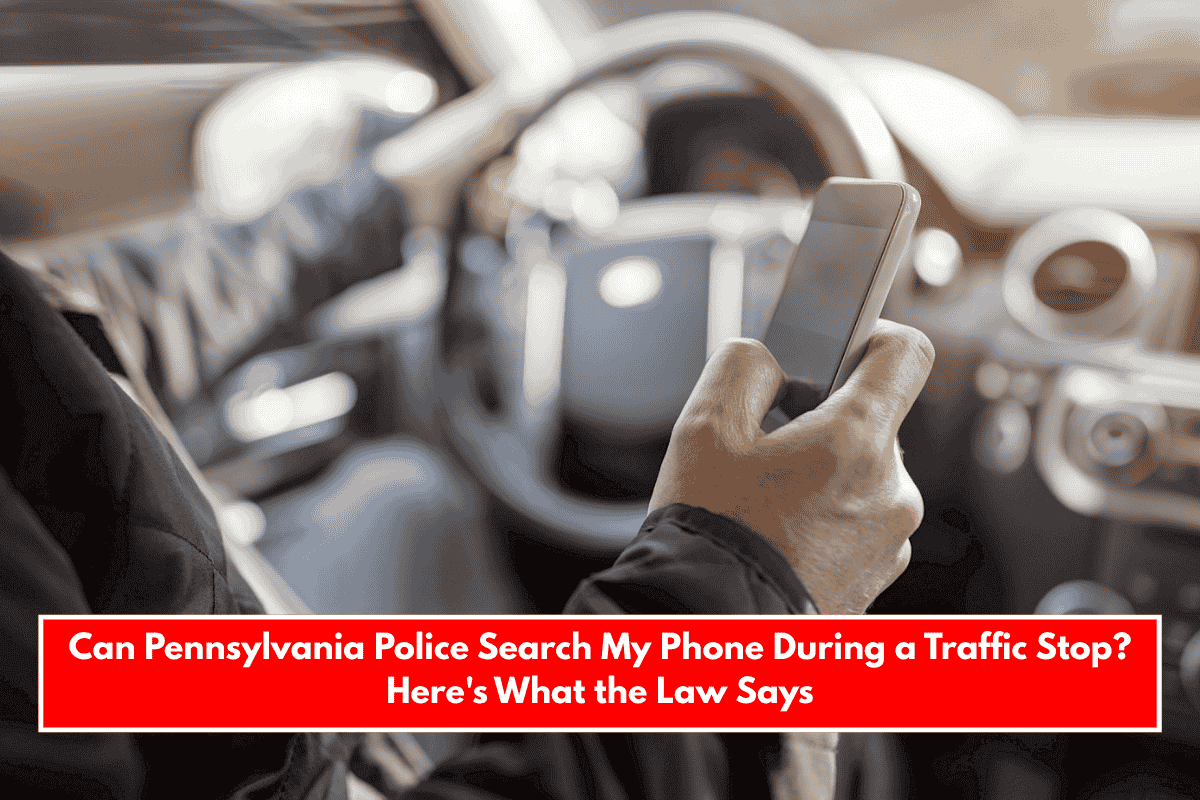In Pennsylvania, the law provides strong privacy protections for your cell phone during a traffic stop. Here’s a comprehensive overview of your rights and what police can-and cannot-do if they want to search your phone.
Warrant Requirement for Cell Phone Searches
Police in Pennsylvania cannot search your cell phone during a traffic stop without a warrant. This protection is grounded in both the U.S. Constitution’s Fourth Amendment and the Pennsylvania Constitution, which actually provides even greater privacy protections than federal law.
The Pennsylvania Supreme Court made it clear in the 2018 case Commonwealth v. Fulton that any search of a cell phone-even simply turning it on to view its number-requires a warrant. This applies regardless of whether your phone is locked or not. The U.S. Supreme Court’s decision in Riley v. California (2014) also established that police must obtain a warrant to access digital data on a cell phone due to the vast amount of personal information stored on modern devices.
What Police Can Do Without a Warrant
- Seize the Phone (But Not Search It): If you are arrested during a traffic stop, police may seize your phone as part of your personal property. However, they cannot access its contents without a warrant.
- Plain View Exception: If illegal contraband is in plain view (for example, drugs or weapons visible in your car), police may seize those items without a warrant. However, this does not extend to the digital contents of your phone, which are not considered in “plain view”.
- Exigent Circumstances: There are rare exceptions where police may search a phone without a warrant if there are “exigent circumstances”-for example, if they reasonably believe that an immediate search is necessary to prevent imminent harm or the destruction of evidence. Even then, such actions are subject to strict scrutiny and are not guaranteed to be upheld in court.
What If Police Search Your Phone Without a Warrant?
If police access your phone’s data without a warrant and no valid exception applies, any evidence they obtain is likely inadmissible in court under the “exclusionary rule.” Your defense attorney can file a motion to suppress this evidence, which means it cannot be used against you in a criminal case.
Your Rights During a Traffic Stop
- You Are Not Required to Consent: If an officer asks for your phone or requests to search it, you are not required to consent. You can-and should-politely decline unless they present a valid search warrant.
- Ask for a Warrant: If police insist on searching your phone, ask if they have a warrant. If not, state clearly and respectfully that you do not consent to the search.
- Remain Calm and Respectful: Always remain calm and respectful during interactions with police. Do not physically resist, but assert your rights verbally.
What About “Stop and Frisk”?
Pennsylvania law allows police to conduct a limited “stop and frisk” if they have reasonable suspicion that a person is armed and dangerous, but this is limited to a pat-down of outer clothing for weapons and does not extend to searching digital devices like cell phones. Any search of your phone’s contents requires a warrant.
Pennsylvania Police and Cell Phone Searches
| Scenario | Can Police Search Your Phone? | Warrant Required? | Exception Possible? |
|---|---|---|---|
| Routine traffic stop | No | Yes | Only in rare exigent circumstances |
| After arrest (seizure, not search) | No (can seize, not search) | Yes | Exigent circumstances very limited |
| Phone is unlocked or unprotected | No | Yes | No |
| Consent given by driver | Yes | No | N/A |
| Evidence in plain view (not digital data) | N/A | N/A | Applies only to physical contraband |
Key Takeaways
- Pennsylvania police cannot search your phone during a traffic stop without a warrant, even if it is unlocked or unprotected.
- You are not required to provide your phone or consent to a search unless police present a valid warrant.
- Evidence obtained from an unlawful search of your phone is likely inadmissible in court.
- Exceptions to the warrant requirement are extremely limited and rarely apply.
If you believe your rights were violated during a traffic stop, consult an experienced criminal defense attorney familiar with Pennsylvania law.
Sources:
- https://gambonelaw.com/what-every-driver-needs-to-know-about-police-vehicle-stops-searches-in-new-jersey-pennsylvania/
- https://yountslaw.com/police-phone-searches/
- https://caselaw.findlaw.com/court/us-supreme-court/434/106.html
- https://www.criminallegalnews.org/news/2018/jun/18/pennsylvania-supreme-court-holds-any-search-cellphone-requires-warrant/
- https://www.thefishmanfirm.com/search-seizure-pennsylvania/














